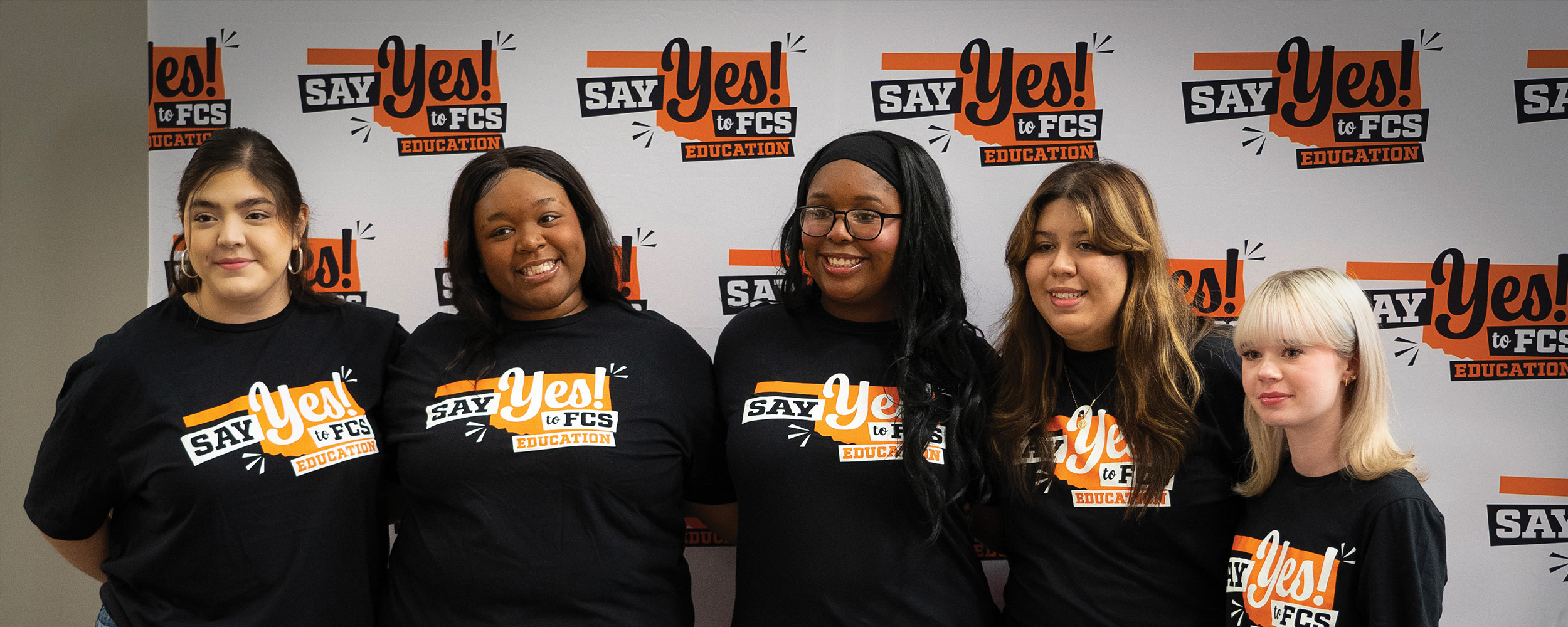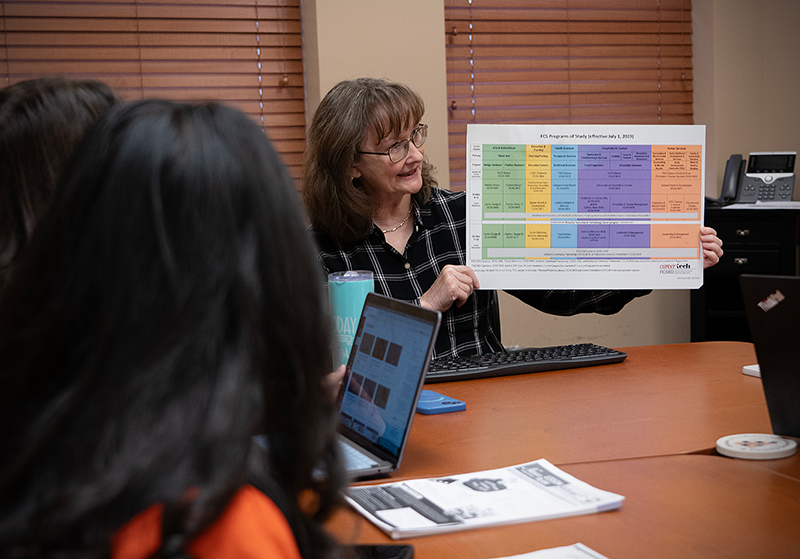
Family and Consumer Sciences Education enhances lives through education and Extension
Monday, November 10, 2025
Media Contact: Kirsi McDowell | Communications Coordinator | 405-744-8320 | kirsi@okstate.edu
As a land-grant institution, Oklahoma State University strives to prepare students for real-world success and extend critical knowledge and expertise to address society’s most pressing problems.
OSU’s land-grant mission is built on responsibility, service and a commitment to improving lives and strengthening communities near and far. Through teaching, research and Extension, the impact of OSU’s emerging leaders can be felt in every corner of the state.
Many degree paths within the OSU College of Education and Human Sciences encompass that mission, but the Human Development and Family Science Family and Consumer Sciences Education degree program might be the most powerful example.
Otherwise known as FACSED, the Bachelor of Science program equips students with the tools to teach real-life skills, build practical and emotional intelligence, and create meaningful change in their communities.
 Dr. Paula Tripp, professor and program coordinator, is at the heart of the program.
Since 2013, she has mentored students, coordinated coursework and guided each future
educator through relevant field experiences.
Dr. Paula Tripp, professor and program coordinator, is at the heart of the program.
Since 2013, she has mentored students, coordinated coursework and guided each future
educator through relevant field experiences.
“In Family and Consumer Sciences, we work with individuals and families to build work-life balance and enhance their relationships, health and life skills,” Tripp said. “When you look at issues going on in society — Family and Consumer Sciences address all of those.”
These topics are applied to the FCS curriculum in junior high and high school, as well as to resources and outreach from Cooperative Extension offices across states and counties.
The FACSED degree program introduces students to classroom teaching and Cooperative Extension as possible career options. By graduation, they not only participate in field experiences for both paths, but also discover where their passion and purpose truly align.
For Stephanie Hall, a 2017 graduate of the OSU FACSED program, that passion has always been teaching.
Hall discovered Family and Consumer Sciences in high school when she joined her school’s Family, Career and Community Leaders of America chapter. The student organization allowed Hall to immerse herself in the leadership opportunities and world skills it provided and discover opportunities in FCS education. She followed her passion for the program and desire to be an educator and pursued a FACSED degree.
During her final year, the OSU Alumni Association honored Hall as a Senior of Significance. She excelled in her undergraduate career and enjoyed flourishing as an educator.
“You’re having those hands-on experiences in your college days, so once you get into the classroom, you can put all those pieces together and become the teacher you want to be,” Hall said.
In the OSU FACSED program, students must fulfill 200 hours of field experience in addition to a capstone semester internship. To satisfy this requirement, students may complete a semester of student teaching or in a county Extension office.
Many students, like Hall, excel in the classroom and follow the corresponding career path, while others find Extension more compatible with their purpose.
Karlie Thomason graduated from the OSU FACSED program in fall 2024 and has since worked as a 4-H Extension Educator for the Logan County Extension Office in Guthrie, Oklahoma.
She works directly with 4-H youth, including a cross-section of agricultural and FCS education efforts in local communities, preparing young people with the knowledge and skills for work and life.
Thomason was not always set on being an Extension educator, though. In fact, she was sure she would enter the classroom until Tripp recommended she apply for an Extension internship in addition to a student teaching semester. Thomason found that working in Extension aligned and fulfilled her passion for FCS education better than the classroom environment.
“The reason I wanted to become a Family and Consumer Sciences educator is because I want to teach kids life skills, how to be prepared after high school and how to just be good people,” Thomason said. “I get to do that in Extension.”
Though their career paths differ, Hall and Thomason point to their degree program’s
extensive fieldwork requirements as a cornerstone of their success. By observing,
practicing and connecting in real-world settings, they built confidence and clarity
about their futures as FCS educators.
Additionally, both alumnae credit Tripp’s dedication and commitment to FCS students and education with their success. Hall stated that during her undergraduate studies, Tripp was “always looking for ways we could achieve better and help us become better educators.”
“She knows the direction to point us, even if we don’t know,” Thomason noted in reference to her own experience.
Tripp carries a unique responsibility as the FACSED program coordinator at OSU. The Oklahoma land-grant university is the only college in the state with an established FACSED degree program.
Every graduate represents an investment in the future of education and community outreach in Oklahoma, and Tripp works continuously on strengthening the FACSED program’s quality and credibility.
Each fall, OSU hosts Say Yes to FCS Education Day, led by Tripp. This event invites high school juniors and seniors to the Stillwater campus. Through workshops and hands-on sessions, it sparks excitement about careers in FCS.
Tripp suggests to incoming students considering the FACSED degree option to “Just go for it,” she said. “You’re going to love your classes, the field experiences and the collegiality with your peers.”
Photos by: Kelly Kerr
Story By: Brittney Purcell | Aspire
